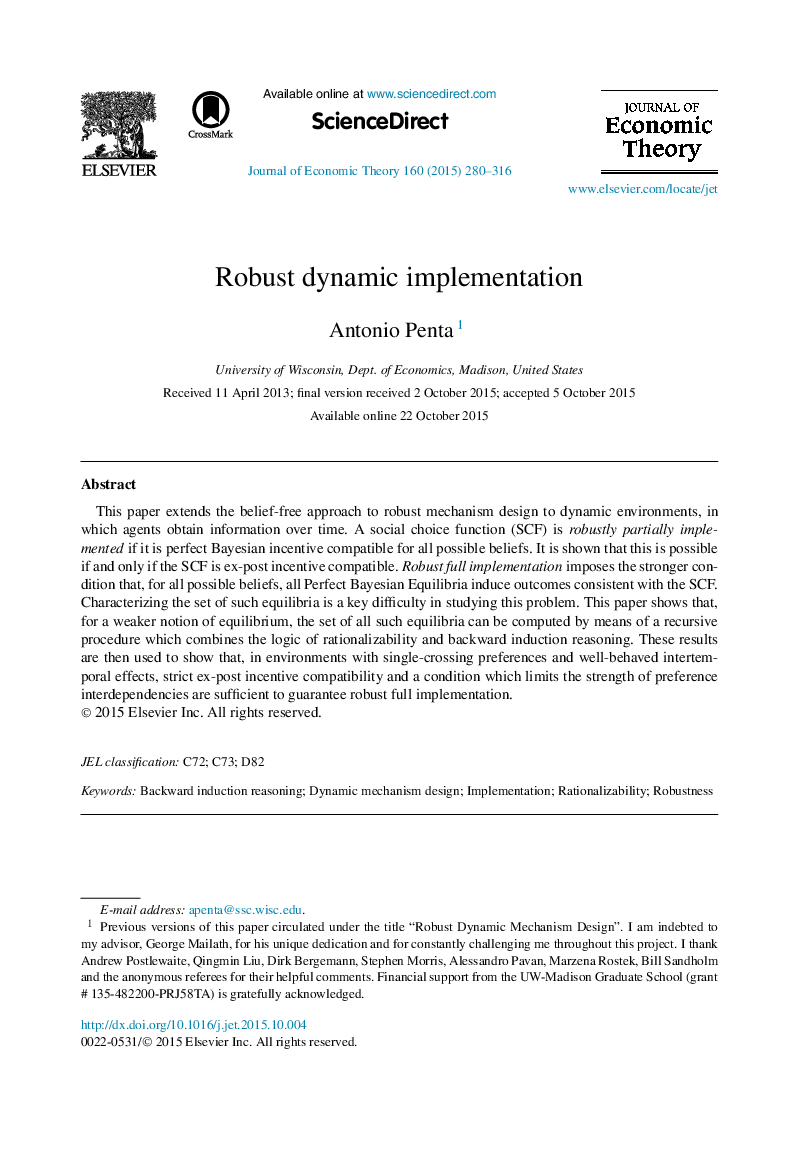| Article ID | Journal | Published Year | Pages | File Type |
|---|---|---|---|---|
| 7359608 | Journal of Economic Theory | 2015 | 37 Pages |
Abstract
This paper extends the belief-free approach to robust mechanism design to dynamic environments, in which agents obtain information over time. A social choice function (SCF) is robustly partially implemented if it is perfect Bayesian incentive compatible for all possible beliefs. It is shown that this is possible if and only if the SCF is ex-post incentive compatible. Robust full implementation imposes the stronger condition that, for all possible beliefs, all Perfect Bayesian Equilibria induce outcomes consistent with the SCF. Characterizing the set of such equilibria is a key difficulty in studying this problem. This paper shows that, for a weaker notion of equilibrium, the set of all such equilibria can be computed by means of a recursive procedure which combines the logic of rationalizability and backward induction reasoning. These results are then used to show that, in environments with single-crossing preferences and well-behaved intertemporal effects, strict ex-post incentive compatibility and a condition which limits the strength of preference interdependencies are sufficient to guarantee robust full implementation.
Related Topics
Social Sciences and Humanities
Economics, Econometrics and Finance
Economics and Econometrics
Authors
Antonio Penta,
